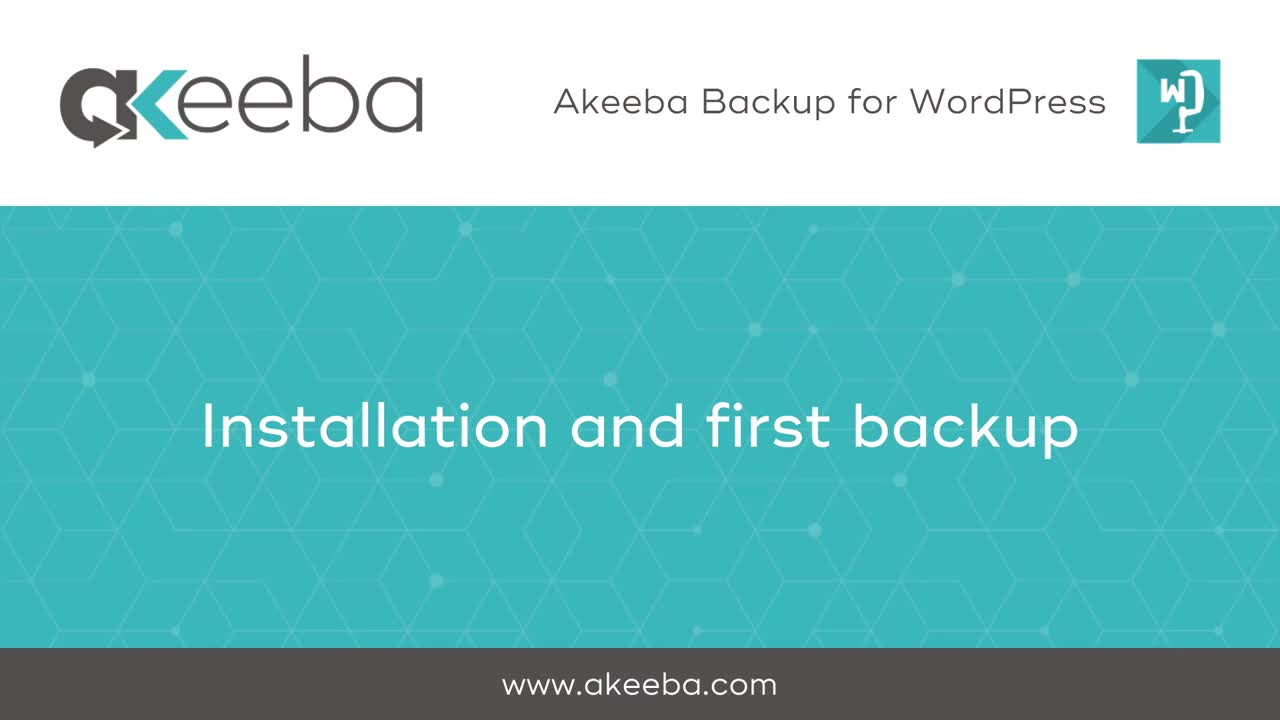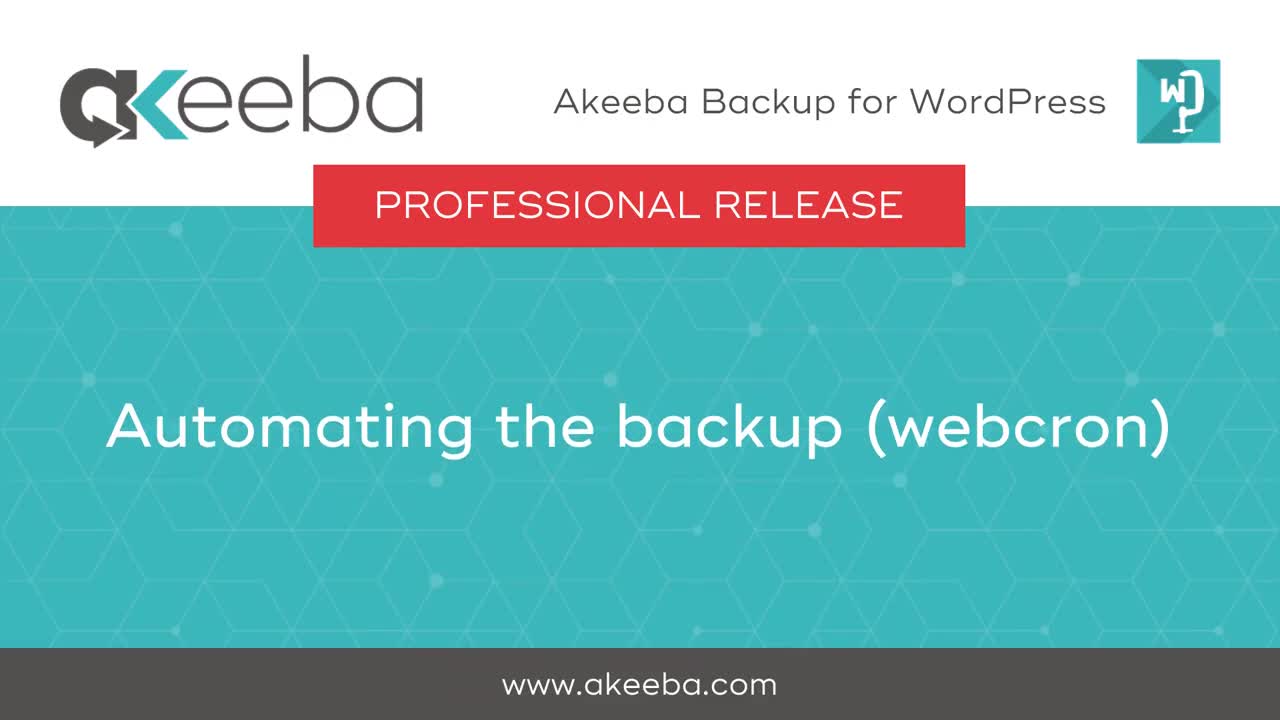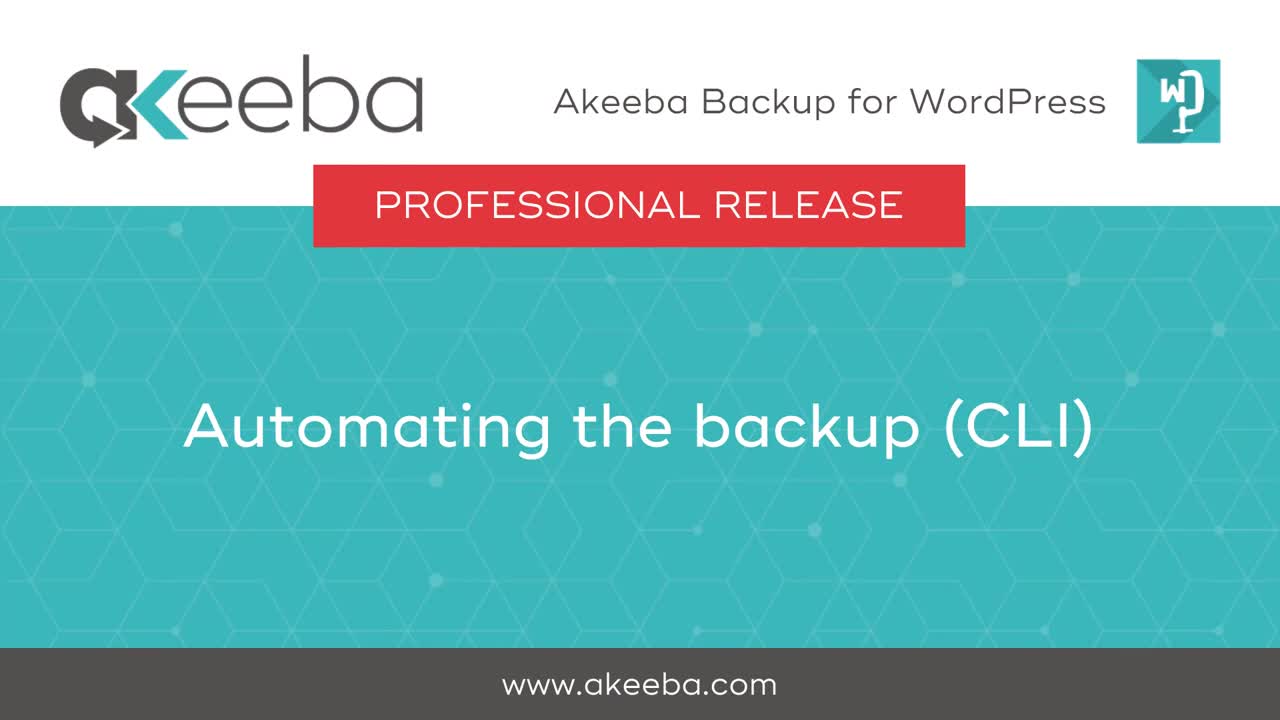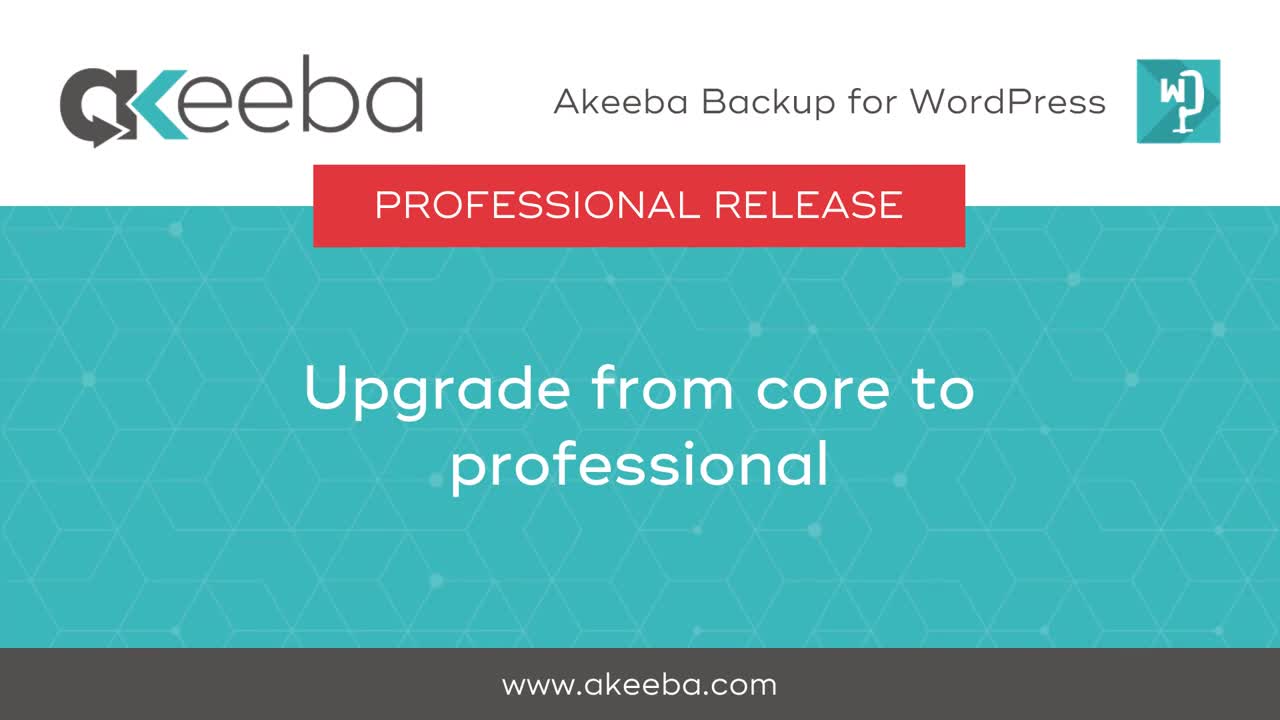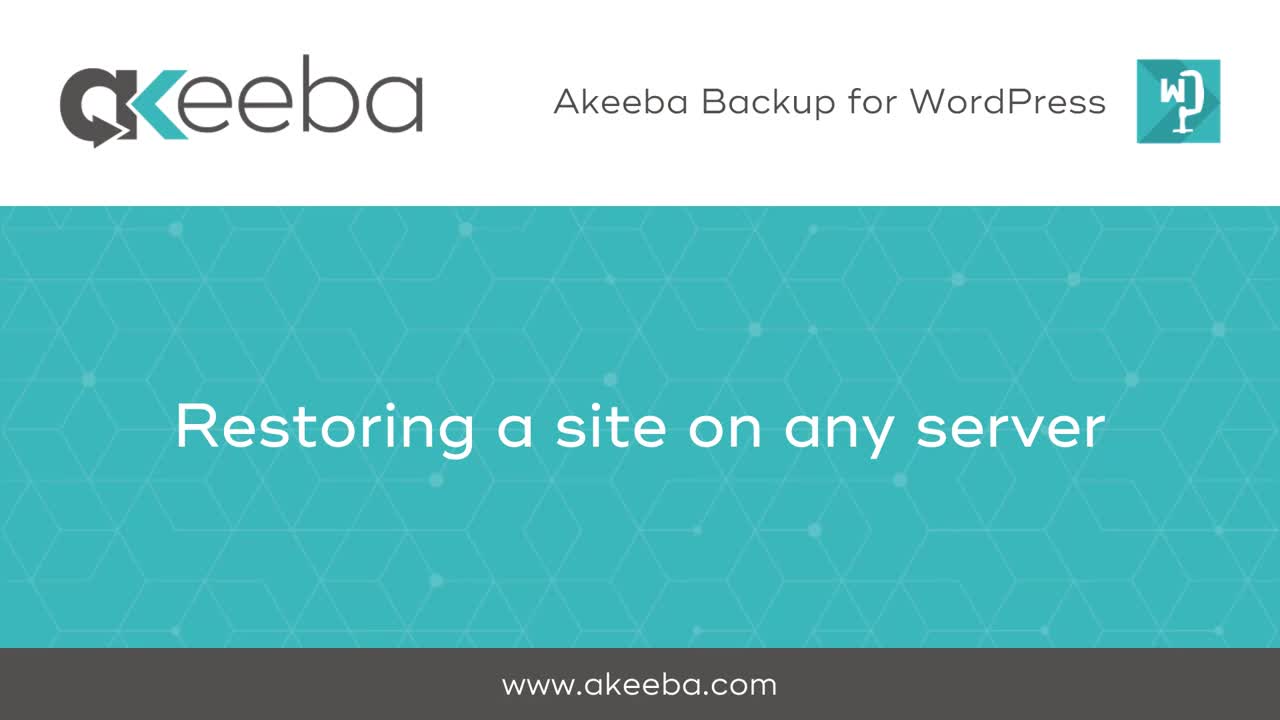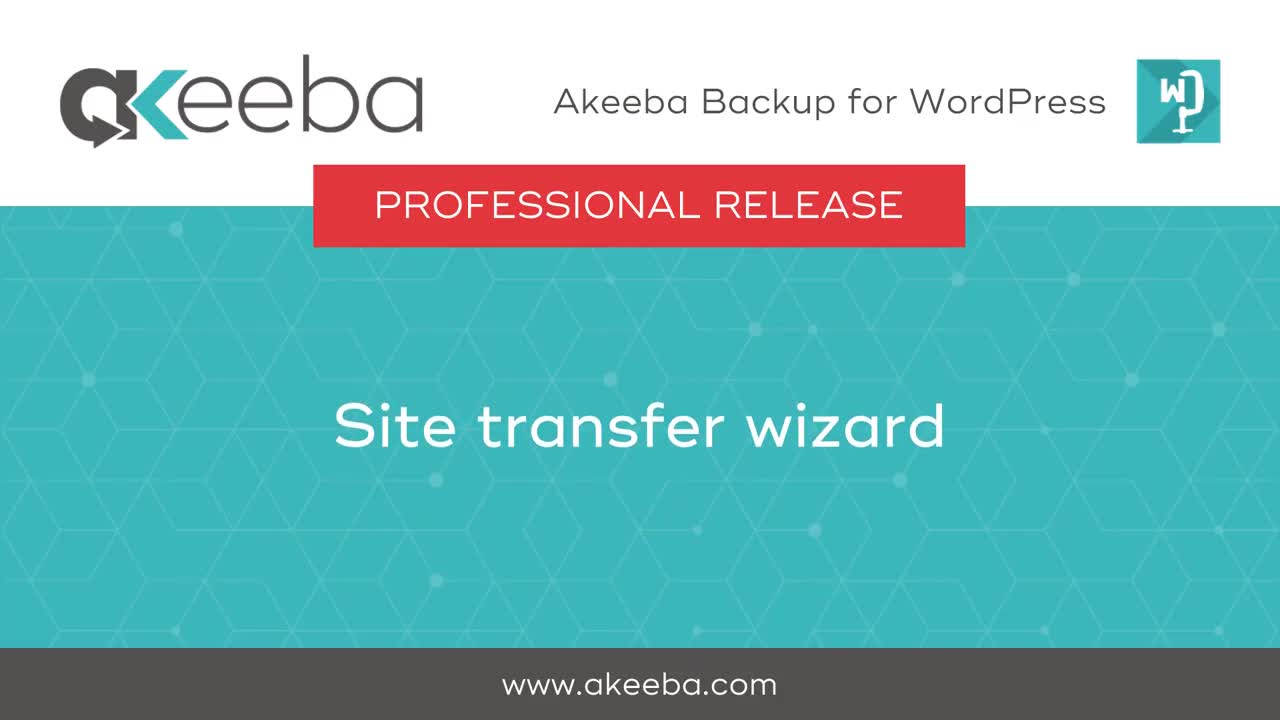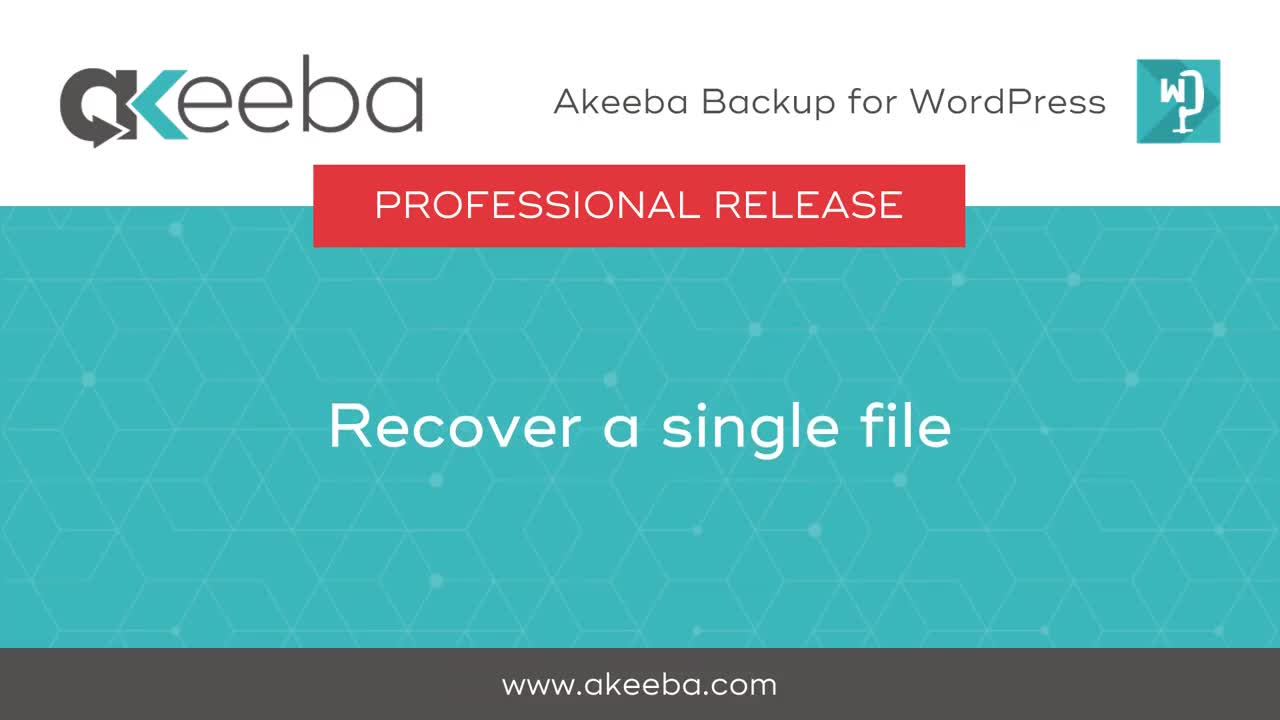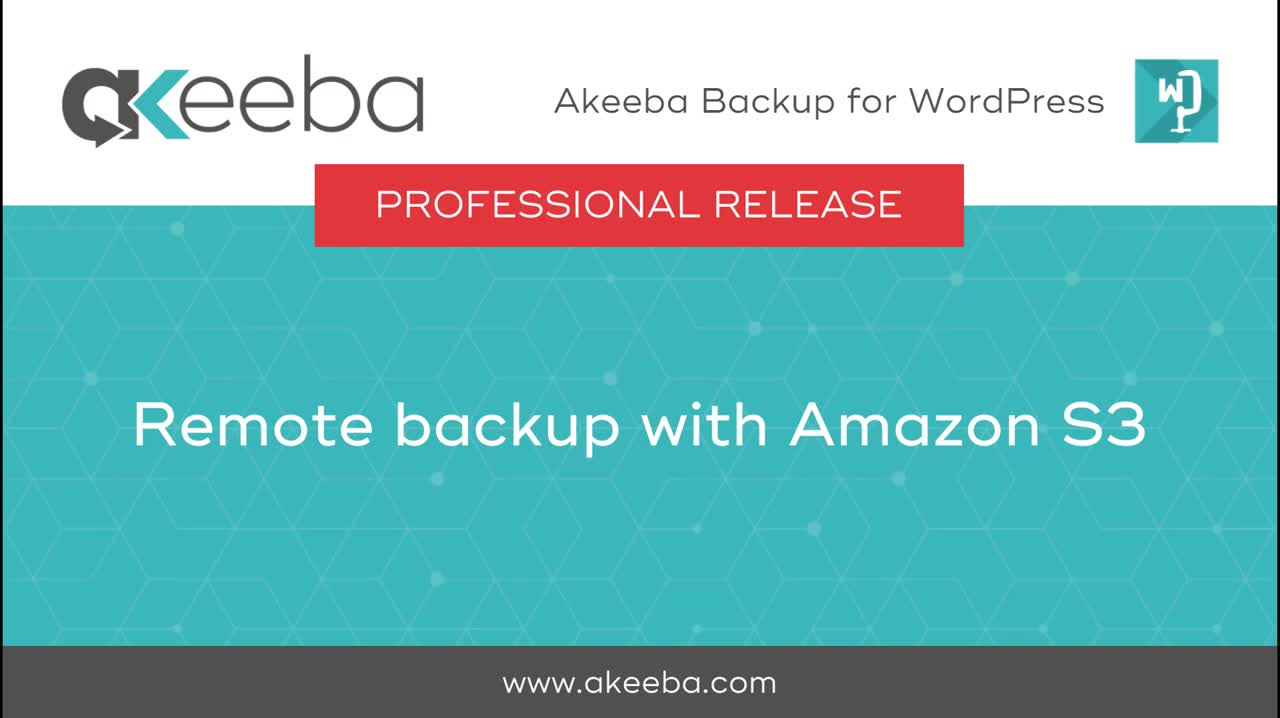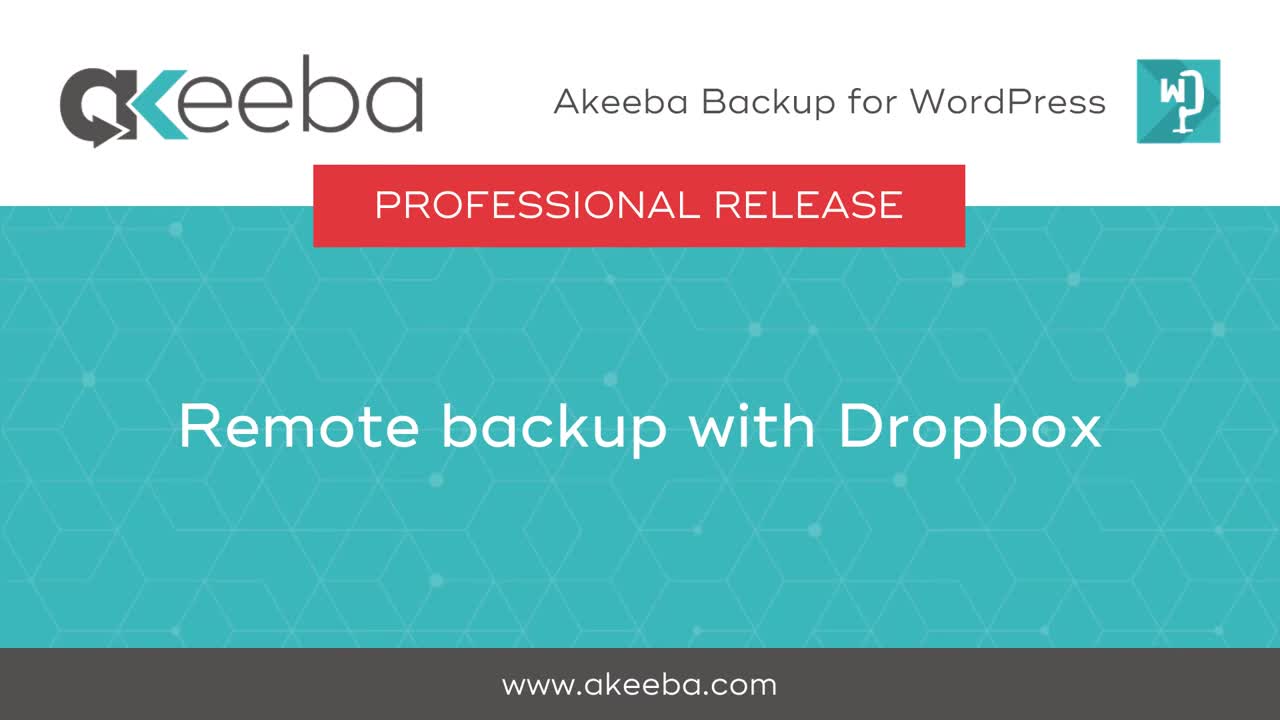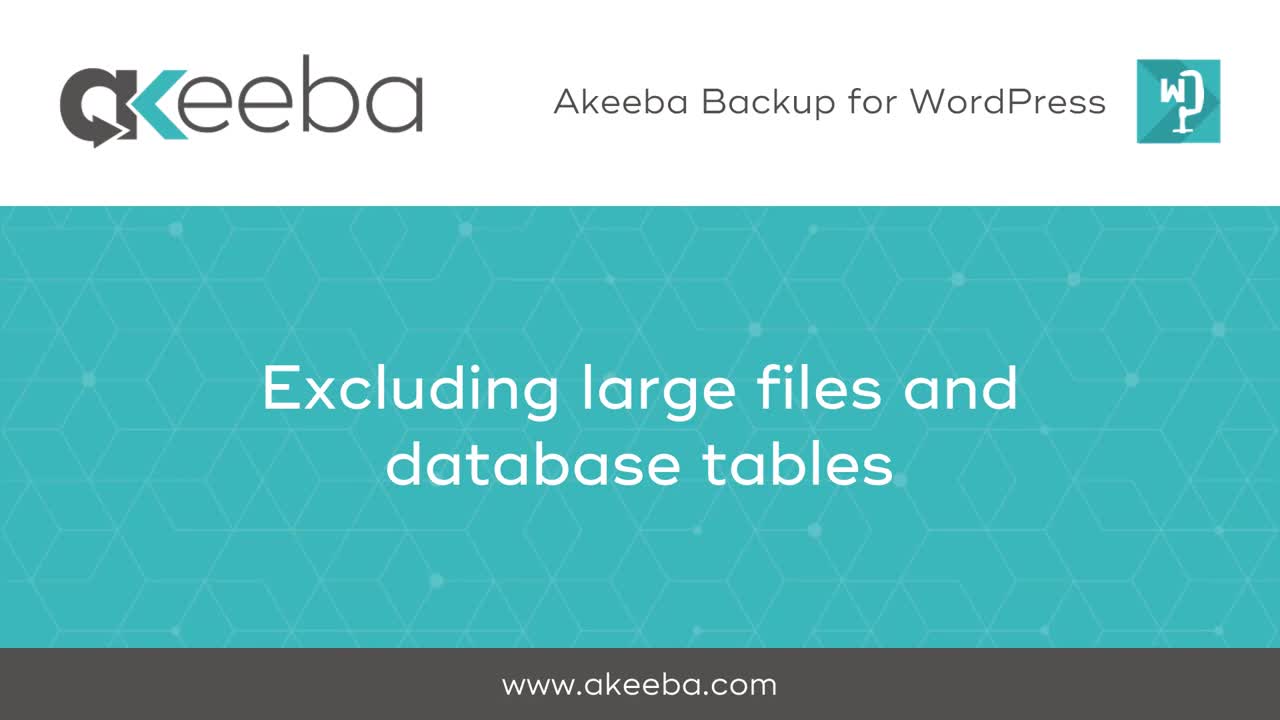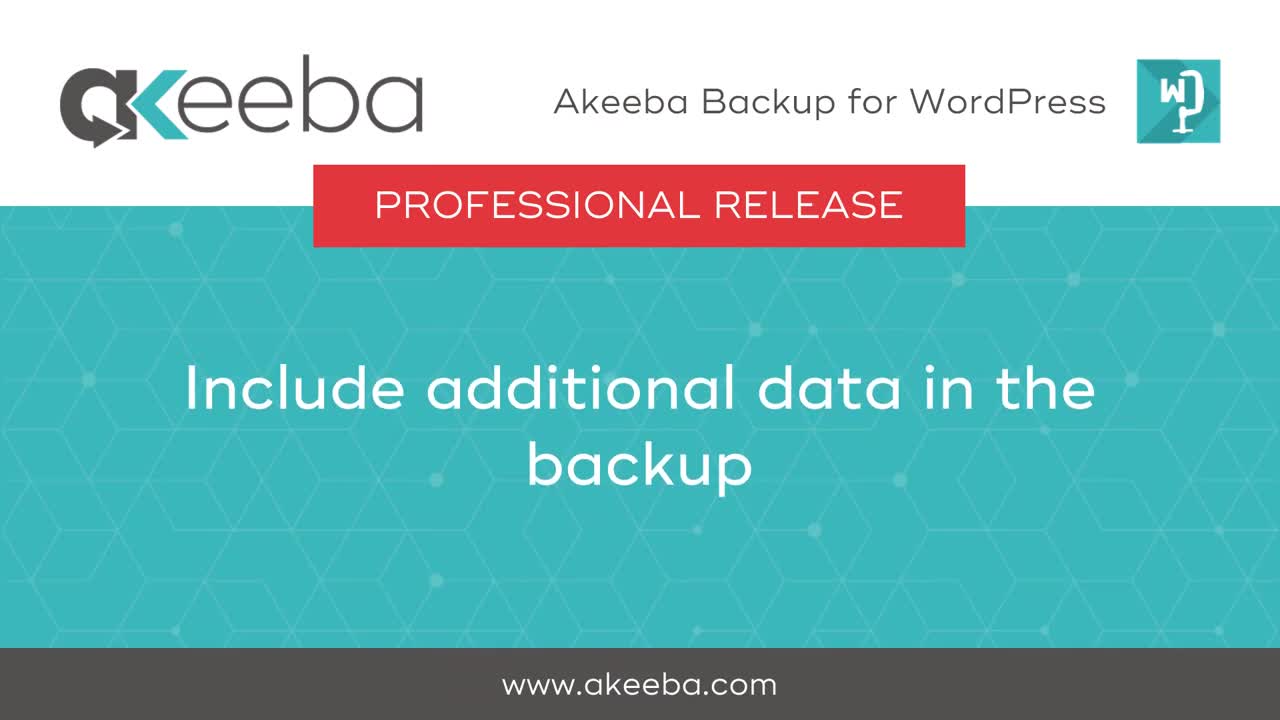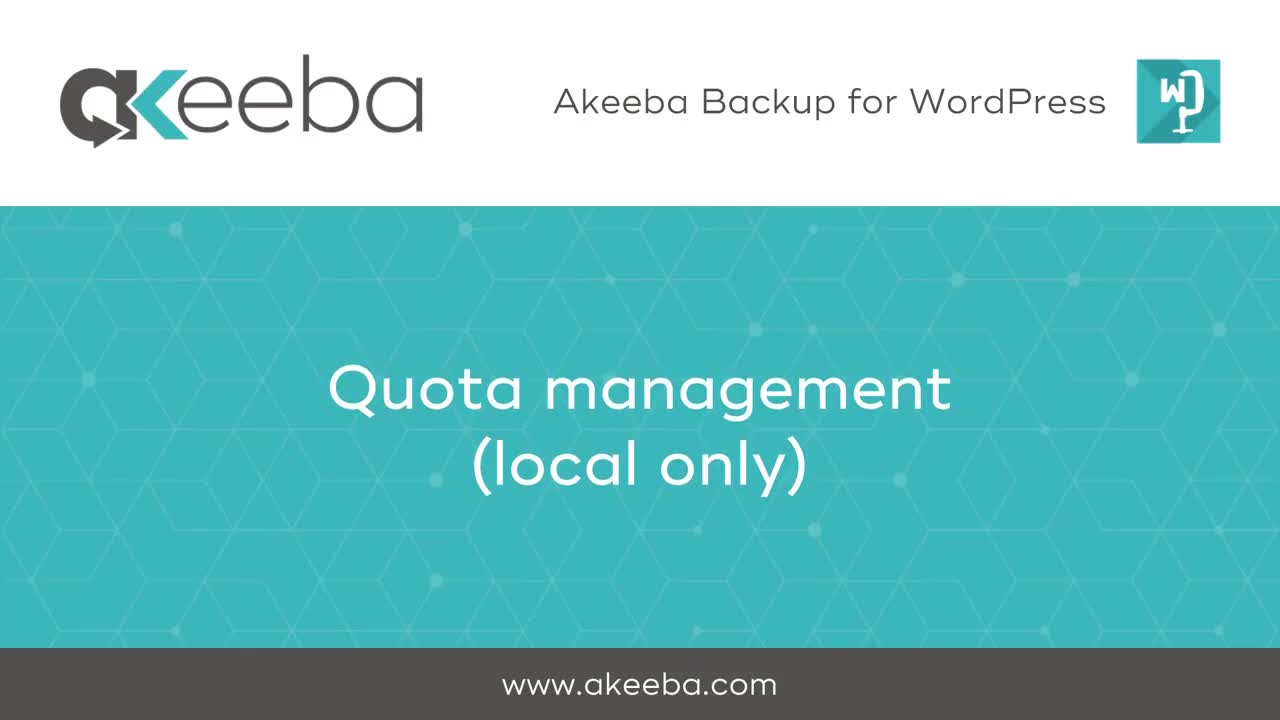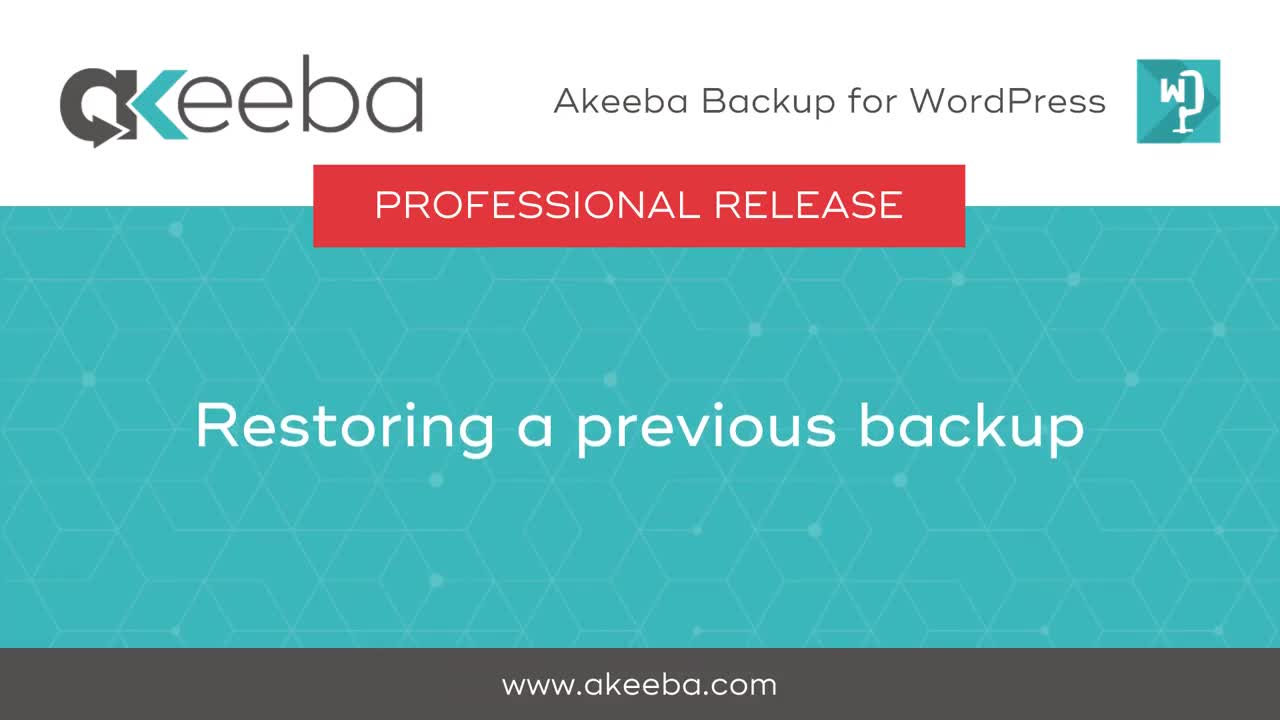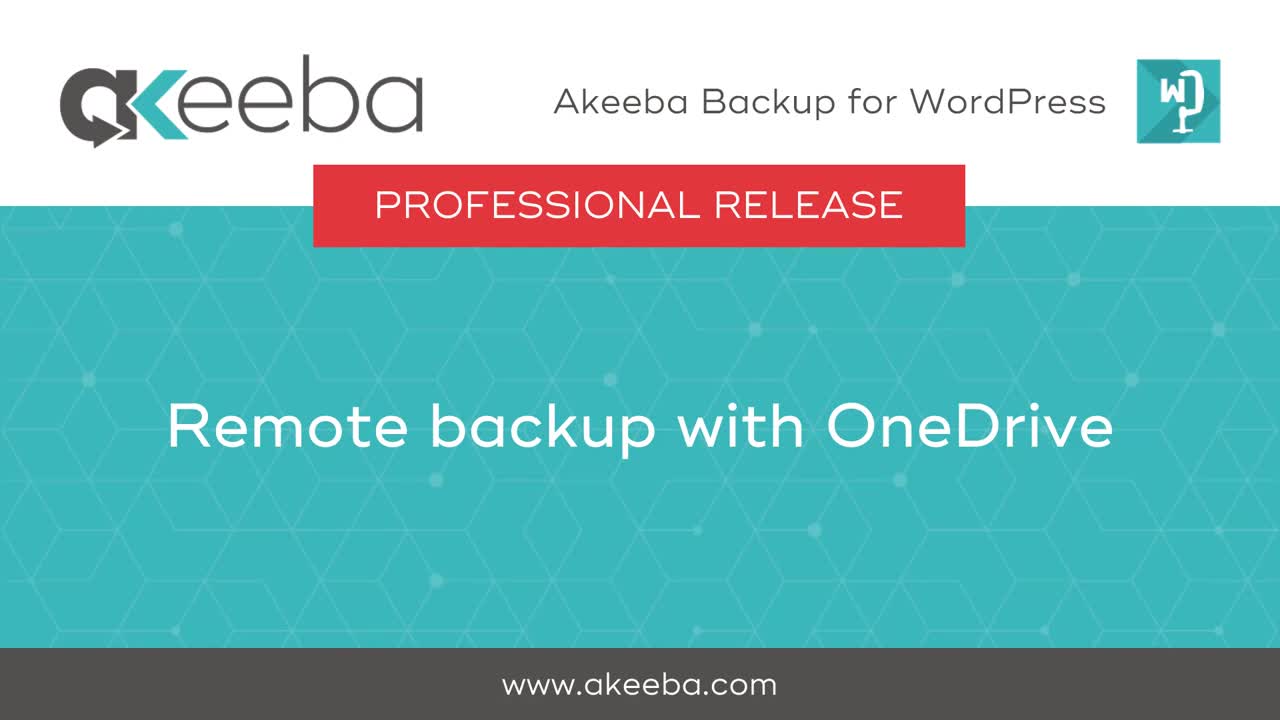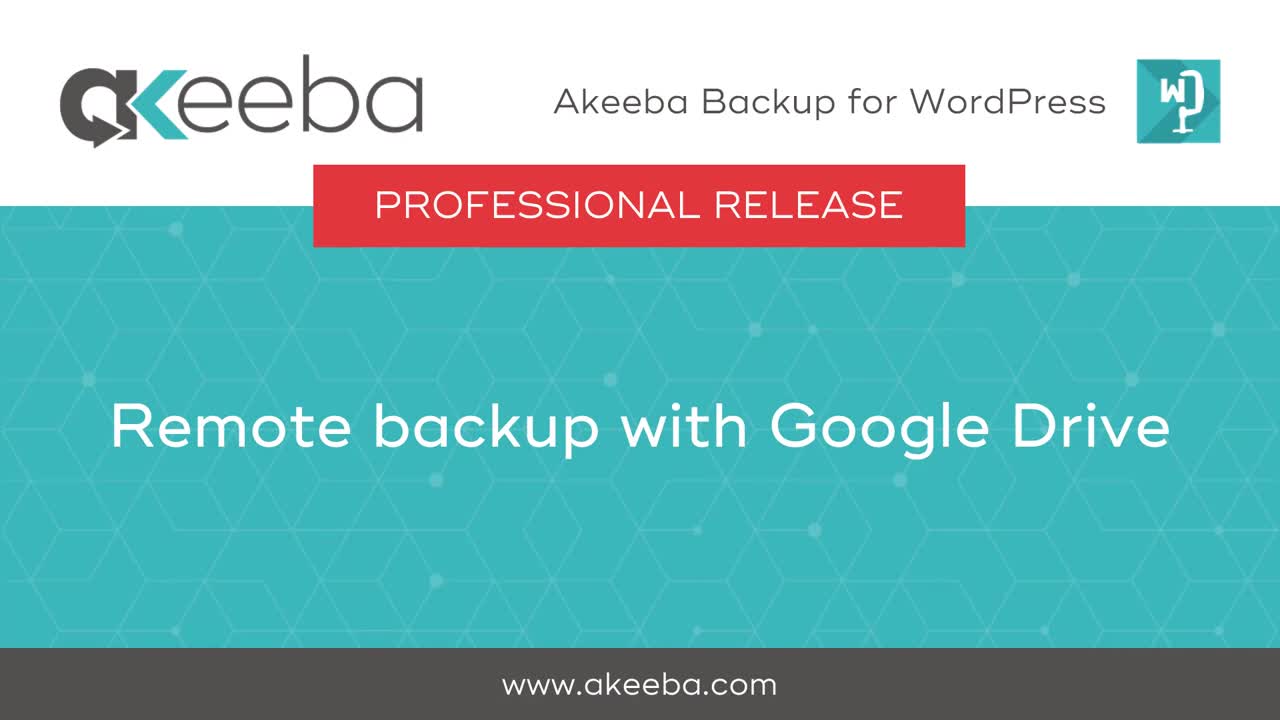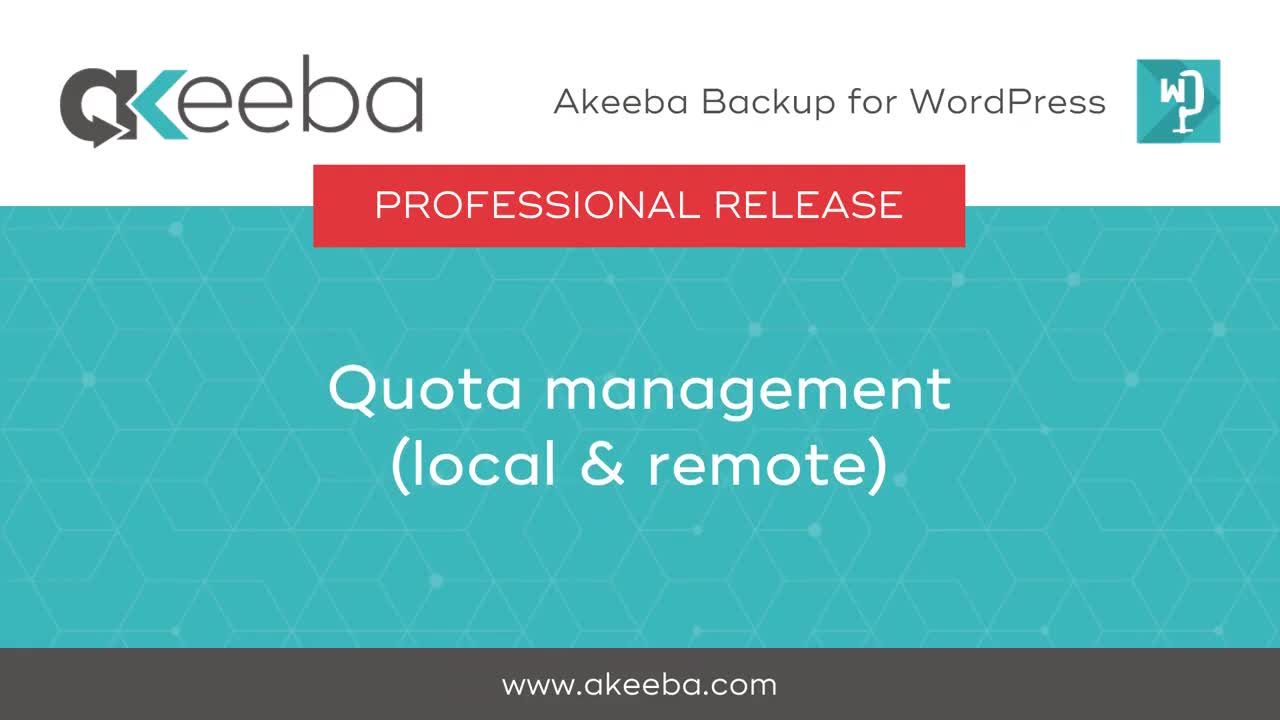Copyright © 2014-2025 Akeeba Ltd
Permission is granted to copy, distribute and/or modify this document under the terms of the GNU Free Documentation License, Version 1.3 or any later version published by the Free Software Foundation; with no Invariant Sections, no Front-Cover Texts, and no Back-Cover Texts. A copy of the license is included in the appendix entitled "The GNU Free Documentation License".
Abstract
This book covers the use of the Akeeba Solo backup application for PHP-powered web sites, Akeeba Backup for WordPress plugin and its associated tools and utilities.
Table of Contents
- I. User's Guide to Akeeba Solo
- 1. Introduction
- 2. Installation, updates and upgrades
- Installing Akeeba Solo (Standalone)
- Installing Akeeba Backup for WordPress
- WordPress roles and Akeeba Backup privileges
- Using on sites with BulletProof Security installed
- Using on CloudWays and other hosts which limit access to .php files
- Updating to the latest version
- Requesting support and reporting bugs
- Understanding PHP versions
- 3. Quick Start
- 4. Akeeba Solo / Akeeba Backup application reference
- First steps
- Main operations
- Configuration wizard
- Configuration
- The main settings
- Database dump engines
- File and directories scanner engines
- Archiver engines
- Post processing engines
- No post-processing
- Send by email
- Upload to Amazon S3
- Upload to BackBlaze B2
- Upload to Box.com
- Upload to CloudMe
- Upload to DreamObjects
- Upload to Dropbox (v2 API)
- Upload to Google Drive
- Upload to Google Storage (JSON API)
- Upload to Google Storage (Legacy S3 API)
- Upload to OneDrive and OneDrive for Business
- Upload to OneDrive (LEGACY)
- Upload to OneDrive (App-specific Folder)
- Upload to Microsoft Windows Azure BLOB Storage service
- Upload to OVH Object Storage
- Upload to OpenStack Swift object storage
- Upload to RackSpace CloudFiles
- Upload to Remote FTP server
- Upload to Remote FTP server over cURL
- Upload to Remote SFTP server
- Upload to Remote SFTP server over cURL
- Upload to SugarSync
- Upload to iDriveSync
- Upload to WebDAV
- Backup now
- Manage backups
- View Log
- Troubleshooter - ALICE
- Site Transfer Wizard
- Import archives
- Import archives from S3
- Update (a.k.a. "Live Update")
- Include data in the backup
- Exclude data from the backup
- System Management
- Automating your backup
- Remote Storage and OAuth2 Helpers
- Miscellaneous features
- WordPress CLI (WP-CLI) integration
- 5. Restoring backups and transferring sites
- 6. Information for removed or canceled features
- II. Security information
- III. Appendices
List of Figures
- 4.1. CRON Cheatsheet
Akeeba Backup for WordPress
|
Public
|
Created by [email protected] on 2023-10-05 17:57 CDT
Latest post by nicholas on 2023-10-06 06:48 CDT
|
|
|
Public
|
Created by RRO on 2023-10-06 03:24 CDT
Latest post by RRO on 2023-10-06 06:31 CDT
|
|
|
Public
|
Created by gmarsh on 2023-10-05 09:40 CDT
Latest post by nicholas on 2023-10-05 10:33 CDT
|
|
|
Public
|
Created by adrienlabigne on 2023-10-04 06:07 CDT
Latest post by nicholas on 2023-10-04 06:42 CDT
|
|
|
High priority
|
Public
|
Created by jba1969 on 2023-10-04 03:43 CDT
Latest post by nicholas on 2023-10-04 05:38 CDT
|
|
Public
|
Created by ChannelDigital on 2023-10-03 05:18 CDT
Latest post by nicholas on 2023-10-03 06:54 CDT
|
|
|
Public
|
Created by rodrago on 2023-10-02 11:43 CDT
Latest post by nicholas on 2023-10-02 12:07 CDT
|
|
|
Public
|
Created by Bumeranghc on 2023-10-02 07:31 CDT
Latest post by nicholas on 2023-10-02 09:22 CDT
|
|
|
High priority
|
Public
|
Created by cdaters on 2023-09-29 22:39 CDT
Latest post by nicholas on 2023-09-30 08:58 CDT
|
|
Public
|
Created by Imrush on 2023-09-25 04:31 CDT
Latest post by nicholas on 2023-09-25 05:07 CDT
|
|
|
Public
|
Created by julian on 2023-09-23 05:29 CDT
Latest post by nicholas on 2023-09-24 14:48 CDT
|
|
|
Public
|
Created by damnsharp on 2023-09-20 03:02 CDT
Latest post by damnsharp on 2023-09-21 05:37 CDT
|
|
|
High priority
|
Public
|
Created by YM45 on 2023-09-14 03:36 CDT
Latest post by nicholas on 2023-09-14 06:56 CDT
|
|
High priority
|
Public
|
Created by epvdvalk on 2023-08-25 08:21 CDT
Latest post by tampe125 on 2023-08-25 08:25 CDT
|
|
High priority
|
Public
|
Created by itsonlycomputers on 2023-08-21 13:59 CDT
Latest post by nicholas on 2023-08-22 03:02 CDT
|
|
Public
|
Created by GJSchaller on 2023-07-26 10:05 CDT
Latest post by nicholas on 2023-07-31 03:01 CDT
|
|
|
Public
|
Created by [email protected] on 2023-07-19 15:29 CDT
Latest post by tampe125 on 2023-07-20 05:29 CDT
|
|
|
Public
|
Created by HSorgYves on 2023-06-29 14:28 CDT
Latest post by HSorgYves on 2023-06-29 14:28 CDT
|
|
|
Public
|
Created by damnsharp on 2023-06-19 06:45 CDT
Latest post by damnsharp on 2023-06-20 03:48 CDT
|
|
|
Public
|
Created by sdhakad on 2023-06-14 06:44 CDT
Latest post by sdhakad on 2023-06-14 23:42 CDT
|
Still need support?
Login or Subscribe to submit a new ticket.
(If filing a bug or you have a pre-sales request, please contact us directly.)
